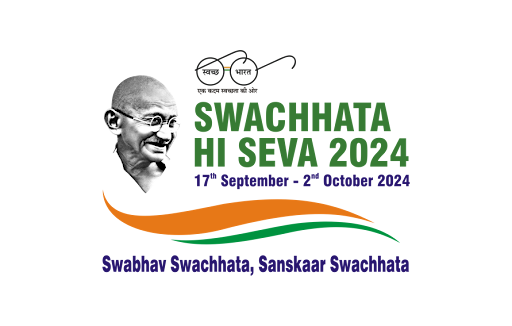
Beyond the Bin: Panaji’s16-Way Sorting Strategy for Urban Waste
Panaji, the capital of Goa and a popular tourist destination, has redefined the city’s waste challenges into opportunities for sustainable growth and citizen involvement through its community engagement and a zero-landfill approach. The city’s efforts, spearheaded by the Corporation of the City of Panaji (CCP), has achieved the landmark 99% source segregation, decentralising waste treatment, integrating cutting-edge technologies and managing revenue and energy.
16-Way Segregation – Setting New Standards
Generating approximately 42 tonnes of waste daily, Panaji’s pioneering 16-way segregation system is central to its waste management strategy1. This system categorises waste into four streams—biodegradable, non-biodegradable, sanitary, and hazardous—and 16 distinct fractions (Figure 1) for enhanced resource recovery. Supported by a robust door-to-door collection mechanism covering 99% of households, this initiative ensures efficient segregation and collection. The success of this system rests on public awareness campaigns, stringent monitoring, and a legislative framework mandating bulk waste generators (BWGs)—such as housing societies, hospitals, and large businesses—to adhere to the 16-category sorting process.

Figure 1- 16 Fractions to Segregate Solid Waste2
Zero-Landfill Strategy
By introducing the 2021 bylaw requiring bulk waste generators (BWGs)—including housing societies, hospitals, and large businesses—to sort the waste into 16 specific categories2, the legislative measure has minimised the environmental impact of waste and enhanced resource recovery. The zero-landfill model reduced groundwater contamination and air pollution, and facilitated economically viable solution to managing urban waste thereby minimising waste management costs, and enhanced resource utilisation.
To further promote waste segregation, bio-digesters installed across the city convert organic waste into biogas, which is used by local businesses, including restaurants and hotels, offering a renewable energy alternative and reducing reliance on fossil fuels. Residential colonies are also encouraged to compost biodegradable waste on-site, further reducing the volume sent to centralised facilities.
Technological Interventions for Efficient Waste Management
To further optimise waste management, the city has embraced advanced technology, including
- Mini Sorting Stations to enable decentralised segregation
- Treating biodegradable waste through aerated composting
- Automated Sorting with Conveyor Belts to increase worker efficiency and reduce manual labour
-
Digital Litter Bins that are equipped with sensors for timely collection and dual-functioning as advertising boards to generate additional revenue.
-
Biomethanation to convert biodegradable waste into biogas via bio-digesters, providing sustainable energy solutions. Located at several places, these bio-digesters provide bio-gas for local canteens, restaurants, and hotels
Community Engagement: A Catalyst for Change
The city has implemented extensive public awareness campaigns to educate citizens the importance of waste segregation and sustainable waste management practices. Campaigns such as ‘Seeti Bajao, City Bachao’ during the International Film Festival of India (IFFI) wherein volunteers blew whistles to discourage littering, digital tools, such as the ‘I Can Change My City’ app, further bridge communication gaps between residents and authorities.
A testament to the resident’s willingness in engaging in waste management was witnessed as a result of a two-day sustainability event, Revival 2020, held in the city. The event raised awareness on responsible waste disposal practices. Participants were encouraged to bring their dry waste and practice self-segregation, resulting in an impressive turnout with a collective contribution of waste3.
This initiative served as a crucial learning experience for the city into implementing the segregation system on a larger scale. Encouraged by this positive response, city officials are now working to expand the program and include more stakeholders, ensuring that waste segregation becomes a standard practice across the city.
Among the 81 housing societies identified as BWGs, 44 have successfully implemented the segregation system, which simply involves the use of 16 designated bins for different waste categories3. This proactive approach demonstrates the potential for community involvement in waste management initiatives3.
Furthermore, by selling recyclable materials, compost, and refuse-derived fuel (RDF), Panaji has created a self-sustaining waste management system. According to NITI Aayog’s Waste-Wise Cities report, CCP earns approximately ₹1 lakh monthly from recyclables and ₹9 lakh from compost sales. This revenue offsets operational costs and enhances infrastructure, ensuring long-term sustainability.
Through its effective management in densely populated areas, Panaji has demonstrated a sustainable and community-driven model for other municipalities to learn and uptake!
1 Atin Biswas, S. P. (2021). Waste-Wise Cities (Best Practices in Municipal Solid Waste Management). New Delhi: Centre for Science and Environment, NiTi Aayog. Retrieved from Centre for Science and Environment and NITI Aayog, New Delhi. Retrieved from: https://www.niti.gov.in/sites/default/files/2021-12/Waste-Wise-Cities.pdf
2 UNDP. (2023, January 18). 16-ways of segregating waste: Panaji’s innovative model of solid waste management. Retrieved from UNDP org : https://www.undp.org/india/stories/16-ways-segregating-waste-panajis-innovative-model-solid-waste-management
3 UNDP. (2023, January 18). 16-ways of segregating waste: Panaji’s innovative model of solid waste management. Retrieved from UNDP org : https://www.undp.org/india/stories/16-ways-segregating-waste-panajis-innovative-model-solid-waste-management
The blog is written by Naim Keruwala, Dr Kalyani Ingle & Uttra Dasgupta from CITIIS team, with inputs from Imagine Panaji Smart City Development Limited.
Add new comment